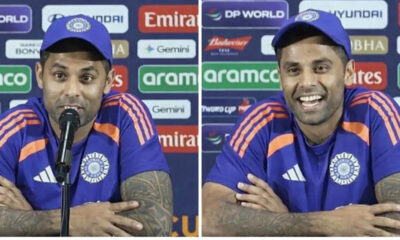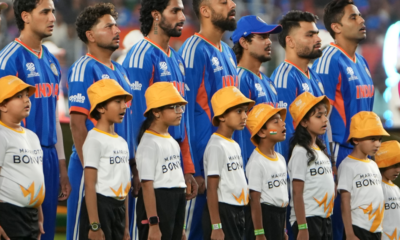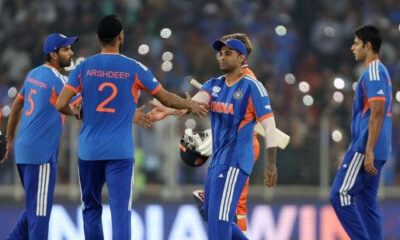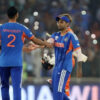Same Stage, New Star: Shubman Gill Steps Up as Test Captain in Style
On a sun-drenched day at Headingley, Indian cricket turned a significant page in its Test history. With Rohit Sharma and Virat Kohli having bid farewell to the red-ball format, the question wasn’t just about who would lead—it was whether the future was ready. On his first day as Test captain, Shubman Gill gave India a resounding answer. Calm, composed, and quietly authoritative, Gill led a young Indian side that not only weathered the pressure of transition but flourished under it.
There were more skeptics than supporters when Gill was named India’s 37th Test captain. Many questioned the timing. Gill had not exactly set the world alight in red-ball cricket abroad. Even Rohit, in his final press interaction as Test skipper in Sydney, had subtly suggested that the NextGen would need to earn their place in the game’s most demanding format.
But with Kohli stepping aside and Jasprit Bumrah’s workload becoming increasingly difficult to manage, the selectors took a leap of faith. A bold decision—some even called it a gamble. Yet as India took the field against England at Leeds, it didn’t feel like a side in flux. It felt like the beginning of something quietly powerful.
The toss didn’t go Gill’s way. England opted to bowl first at a venue where batting second has historically brought better results. A tactical move—one that could have exposed India’s fresh lineup under pressure. But what followed was an exhibition of control, patience, and intent.
Openers Yashasvi Jaiswal and KL Rahul showed maturity beyond their years. They respected the conditions, assessed the movement, and left well. They refused to be tempted by England’s “sucker balls” outside off, with Sanjay Manjrekar even remarking that Kohli might’ve gone fishing for one of those deliveries. But Rahul and Jaiswal weren’t playing for legacy yet—they were playing for a new beginning. Their 91-run stand set the tone for the day.
Yet, in classic Test fashion, the game reminded everyone that dominance is never permanent. Rahul fell just before lunch, playing the very drive that had brought him his best runs of the morning. Debutant Sai Sudharsan walked in, nerves showing, and was dismissed for a duck, chasing a loose leg-side delivery. From 91 for no loss, India slipped to 91 for 2. The transition phase, momentarily, looked fragile.
But that was the last time India wavered.
What followed was a statement. Jaiswal continued unfazed, reaching a brilliant hundred—his first as an opener in England. Then came the moment everyone had waited for: the new captain walking in, on his first day in office, with the weight of a billion expectations.
Shubman Gill batted like a man with a plan. Not flashy, not flamboyant—just disciplined, efficient, and assured. His control percentage, one of the highest of the day, told the real story. England tested him with inswingers aimed at the pads, a well-known weakness. But Gill adjusted, left early, and resisted temptation. And when the bowlers overpitched or strayed short, he punished them with elegant drives and commanding pulls.
His 127-run knock wasn’t just about numbers. It was about presence. About silencing doubters not with fire but with composure. The roar he let out on reaching his century was uncharacteristic—but telling. He may be quiet, but Gill knows the world is watching. And he knows the burden he now carries.
Like Kohli did in Adelaide in 2014, Gill used the responsibility of leadership to lift his batting. That Adelaide Test was a turning point in Kohli’s career—his twin centuries cementing him as the captain India needed. At Leeds, Gill may have had his own moment. Not as dramatic, not as confrontational—but just as important.
And while Gill provided the spine, it was India’s new vice-captain, Rishabh Pant, who brought the flair.
Pant walked in late in the day and lit up Headingley with a counterattack that only he could pull off. He charged at pacers, danced down the pitch, and even launched a six with just minutes left in the day. His 63 was vintage Pant—madness mixed with genius. And it left England’s bowlers deflated. When the second new ball was taken, there was no fire in their stride. Stokes looked around for answers. None were found.
By stumps, India had reached a commanding 359 for 3. Jaiswal made 101. Gill scored 127. Pant added 63. A team in transition had dominated from start to finish.
It wasn’t just the runs or the partnerships—it was the manner in which they came. The clarity. The confidence. The refusal to be overwhelmed by the occasion.
A few months ago, some fans feared for the future of Indian Test cricket. The retirements of Rohit and Kohli left a vacuum not just of runs but of identity. Who would fight? Who would grind it out on difficult days? Who would lead?
On Friday at Headingley, they got their answer.
Gill’s India is young, bold, and unafraid. They still admire Kohli and Rohit, still dream of emulating them. But they are not trying to imitate. They are forging their own path—less noise, more steel.
You could see it in Shubman Gill’s eyes at the toss. You could hear it in the sound of Pant’s bat connecting with the ball. You could feel it in Jaiswal’s quiet celebration.
The torch has been passed. And if Day 1 is anything to go by, Indian Test cricket is in good hands.
IT.




























